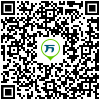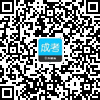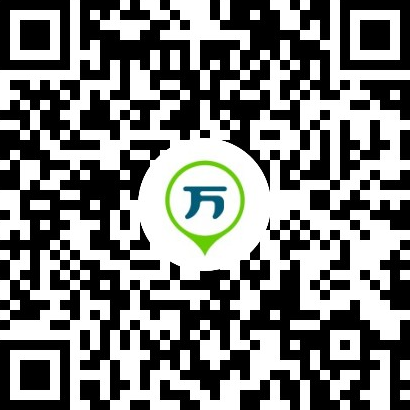C
The International Olympic Committee (IOC) said on February 9 it would award its highest honour to Arthur Ashe, the tennis star and human rights fighter who died on February 6 of AIDS. He was 49.
The award, called the Olympic Order, is awarded to sportsmen and others for service to the Olympics and its principled.
Ashe never participated in the Olympics, but IOC president Juan Antonio Samaranch said: “I think he was really a thorough Olympian.”
Ashe is the first black man to win Wimbledon and the only black to win the Australian US open titles.
Last April 8, he announced he had AIDS, which he got from a blood transfusion during a heart operation in 1983.
Ashe often worked for racial equality in and out of sports. He said the happiest moment of his life was not winning Wimbledon, but when Nelson Mandela—South Africa‘s antiapartheid (反種族隔離的) leader—was freed from jail in 1990.
A quote from Ashe: “I have good days and bad days. My ratio of good days to bad days is about six to one.”
( )59. The underlined word “award” in the first paragraph means “________”。
A. send a telegraph B. give a prize
C. congratulate somebody D. be in memory of somebody
答案:B
( )60. Arthur Ashe ________.
A. won Olympic gold medals in tennis
B. took part in several Olympic Games
C. was a famous sportsman in the Olympic Games which was held in South Africa
D. had not been in any Olympic games
答案:D
( )61. ________ made Ashe happier than anything else.
A. Nelson Mandela‘s freedom
B. Winning the Australian US open titles
C. Juan Antonio Samaranch‘ s congratulation
D. His good days in his life
答案:A
( )62. Which is correct?
A. There were as many good days in his life as bad days.
B. His good days were equal to his bad days.
C. He had more good days in all his life than bad days.
D. He had six good days in all his life.
答案:C
D
For some time past, it has been widely accepted that babies—and other creatures—learn to do things because certain acts lead to “rewards”, there is no reason to doubt that this is true. But it used also to be widely believed that effective rewards, at least in the early time, had to be directly connected to such basic physiological “drives” as thirst or hunger. In other words, a baby would learn if he needed food or drink or some sort of physical comfort, not otherwise.
It is now clear that this is not so. Babies will learn to behave in ways that produce results in the world with no reward except success in sight.
Papousek began his studies by using milk in the normal way to “reward” the babies and so teach them to carry out some movements, such as turning the head to one side or the other. Then he noticed that a baby who had had enough to drink would refuse the milk but would still go on making, the learned response with clear signs of pleasure. So he began to study the children‘s responses in situations where no milk was provided. He quickly found that children as young as four months would learn to turn their heads to right or left if the movement “turned on” some lights—and indeed that they were able to learn some more turns to bring about this result, for example, two left or two right, or even to make as many as three turns to one side.
Papousek‘ s light experiment was placed directly in front of the babies and he made the interesting observation that sometimes they would not turn back to watch the light closely although they would “smile and speak” when the light was on. Papousek concluded that it was not the sight of the lights which pleased them. It was the success they were achieving in solving the problem, in mastering the skill, and then there is a basic human nature to make sense of the world and bring it under control.
( )63. According to the writer, babies learn to do things which _______.
A. will satisfy their surprise B. will meet their physical needs
C. are directly connected to pleasure D. will bring them a feeling of success
答案:D
( )64. Papousek noticed in his studies that a baby _________.
A. would make learned responses when it saw the milk
B. would continue the simple movements without being given milk
C. would turn its head to right or left when it had enough to drink
D. would carry out learned movements when it had enough to drink
答案:B
( )65. The babies would “smile and speak” at the lights because ________.
A. they succeeded in “turning on” the lights
B. the sight of lights was interesting
C. they need not turn back to watch the lights
D. the lights were directly connected to some basic “drives”
答案:A
五、补全对话(共5句;每句满分为3分,共15分。)
根据中文提示,将对话中缺少的内容下在线上。这些句子必须符合英语表达习惯。打句号的地方,用陈述句;打问号的地方,用疑问句。
提示:Joe和Henry谈起报上的一篇文章,Henry问什么报,什么文章。他没用读完这篇文章,但标识下午要读,然后告别。
Joe :Hi, have you read today‘s newspaper?
Henry:_________66___________?
Joe :The People‘s Daily.
Henry:________67__________. But I only looked through it while having lunch.
Joe :Did you notice an interesting article?
Henry:___________68___________?
Joe :About air pollution.
Henry:________69__________. On which page?
Joe :On page 5. At the bottom.
Henry:Good. I‘ll read it this afternoon.
Joe :Don‘t forget to tell me what you think after reading it.
Henry:Sure. __________70__________.
Joe :See you.
66.答案:Which one (do you mean)
67.答案:Yes, I did
68.答案:What article / What is it about
69.答案:Sorry, I didn‘t
70.答案:See you later
六、书面表达(共30分)
写一篇记述在海滨度周末的日记,内容包括以下几点:初夏,风和日丽;有很多游人和小船,我门捡贝壳(shell);日光浴(sun bathe)玩得很愉快。
注意:(1)行文要流暢;
(2)要符合日记的格式;
(3)词数为100左右。
答案:June 18, 2002, Saturday Fine
Yesterday some of my classmates and I spent our weekend at the seaside.
It was sunny and a little hot, but the water was too cool to swim in. The sea was blue and calm. It shone merrily under the bright sun. There were boats floating here and there. People in them laughed and sang happily.
We took off our shoes and went into the cool water. We walked along the beach in the water. Some girls looked for shells on the shore. Then we lay down and bathed in the sun or played games until it was time to go home.
We all enjoyed a pleasant time at the seaside.
相关推荐:
- 培训课程
- 更多课程报名入口>>
| 美好明天 在线课程 |
科目 | 主讲 老师 |
直播 试听课 |
教材 精讲班 教材精讲班 15课时
(1)对教材中所有知识点进行系统讲解 (2)根据近年考试规律对知识点进行重要程度标注(必考/常考/可考或1星/2星/3星等,不同科目略有差异) (3)核心知识点配备模拟题和历年真题进行实战练习 |
重要考点 密训班 重要考点密训班 5课时
(1)总结、提炼重要、核心必考考点,剔除非重要考点 (2)配套密训试题,将考点变考分 |
VIP密训 密卷班 教学时长:3课时
(1)逐题精讲3套核心试卷,列出涉及考点,学会利用知识点答题 预测考试重点方向,巩固答题技巧 强化解题思维 构建成套解题思维 (2)历年真题题库:逐题配备文字、视频解析,了解最新命题趋势,实战训练巩固知识点 |
考前5页 A4纸 考前5页A4纸密押:核心必考点精华集合,
5星重要,是老师们呕心沥血总结出来的, 全部背会,确定再次提分,你懂得! |
报名 |
|---|---|---|---|---|---|---|---|---|
 下载 下载 |
 下载 下载 |
 下载 下载 |
 下载 下载 |
|||||
| 课程安排 | 15课时/科 | 5课时/科 | 3套卷/科 | 5页纸/科 | ||||
| 专升本 | 政治 | 大雄 | 报名 | |||||
| 英语(专升本) | Oriana | 报名 | ||||||
| 高等数学(一) | 开耕 | 报名 | ||||||
| 高等数学(二) | 开耕 | 报名 | ||||||
| 民法 | 肖潇 | 报名 | ||||||
| 大学语文 | 小元 | 报名 | ||||||
| 教育理论 | 五月 | 报名 | ||||||
| 医学综合 | 梦茹,鸿儒 | 报名 | ||||||
| 艺术概论 | 猗猗 | 报名 | ||||||
| 高起点专本 | 语文 | 小元 | 报名 | |||||
| 英语(高起点) | Oriana | 报名 | ||||||
| 数学(理) | 开耕 | 报名 | ||||||
| 数学(文) | 开耕 | 报名 |
在线课程 |
AI私塾班
56%学员选择 |
签约保障班
38%学员选择 |
基础提升班
6%学员选择 |
||
| 适合学员 | ①零基础/多次考试未通过 ②需要全面系统学习 ③自学能力不足/喜欢陪伴式学习(需要全程督学/希望名师领学的学员) ④希望一次顺利录取 |
①首次报考/往年裸考 ②备考时间紧张/答题无思路 ③需要快速提分和高效掌握考试重难点的学员 ④实务较弱,需要提升做题能力 |
①自学能力强 ②能根据老师讲课内容自主总结考试重点 |
||
|---|---|---|---|---|---|
在线课程 |
AI私塾班
56%学员选择 |
签约保障班
38%学员选择 |
基础提升班
6%学员选择 |
||
| 适合学员 | ①零基础/多次考试未通过 ②需要全面系统学习 ③自学能力不足/喜欢陪伴式学习(需要全程督学/希望名师领学的学员) ④希望一次顺利录取 |
①首次报考/往年裸考 ②备考时间紧张/答题无思路 ③需要快速提分和高效掌握考试重难点的学员 ④实务较弱,需要提升做题能力 |
①自学能力强 ②能根据老师讲课内容自主总结考试重点 |
||
|---|---|---|---|---|---|
| VIP三位一体课程体系 | 学 | 教材精讲班 | |||
| 重要考点密训班 | |||||
| 练 | VIP密训密卷班 | ||||
| 背 | 考前5页A4纸 | ||||
| VIP旗舰服务 | 人工助学服务 | 班主任微信1对1 | |||
| 授课老师微信1对1 | |||||
| 节点严控 | 考试倒计时提醒 | ||||
| VIP直播日历 | |||||
| 上课提醒 | |||||
| 便捷系统 | 课程视频、音频、讲义下载 | ||||
| 手机、平板、电脑多平台听课 | |||||
| 无限次离线回放 | |||||
| VIP配套资料 | 电子资料 | 课程讲义 | |||
| 3年真题集锦 | |||||
| 考前5页纸 | |||||
| VIP配套保障 | 1年有效期! 有效期结束,未达到录取线申请退费或终身免费学! |
1年有效期! 有效期结束,考试不过科目免费重学1年! |
1年有效期! | ||
| 套餐价格 | 全科:¥3980 | 全科:¥2680 单科:¥980 |
全科:¥1680全科 单科:¥580 |
||
·2021年成人高考高起点《语文》古诗提分题(五) (2021-8-12 10:53:06)
·2021年成人高考高起点《语文》古诗提分题(四) (2021-8-12 10:52:01)
·2021年成人高考高起点《语文》古诗提分题(三) (2021-8-12 10:50:40)
·2021年成人高考高起点《语文》古诗提分题(二) (2021-8-12 10:41:02)
·2021年成人高考高起点《语文》古诗提分题(一) (2021-8-12 10:37:23)
·免费真题 ·模考试题


实用文档 | 入党资料 | 入党申请书 | 入党志愿书 | 个人自传 | 转正申请书 | 思想汇报 | 个人简历 | 简历模板 | 简历封面 | 工作计划 | 工作总结 | 自我评测
个性评测 | 社交评测 | 事业评测 | 运势评测 | 报告 | 实习报告 | 工作总结 | 社会实践 | 心得体会 | 述职报告 | 调查报告 | 辞职报告
法律文书 | 合同范本 | 演讲范文 | 更多>>
英语学习 | 听力口语 | 阅读写作 | 翻译文化 | 趣味英语 | 学习方法 | 英文经典歌曲 | 每日课堂 | 空中英语 | 少儿英语 | 影视英语 | 英文歌曲 | 更多>>
作文大全 | 作文 | 小学 | 初中 | 高中 | 话题作文 | 考研 | 四六级 趣味作文 | 体裁作文 | 记叙文 | 议论文 说明文 | 应用文 | 读后感 | 作文素材 | 名言警句
优美段落 | 哲理故事 | 诗词赏析 | 成语知识 | 技巧 | 写作指导 | 作文点评 | 佳文赏析 | 写作基础 | 话题演练 | 作文教学 | 更多>>









